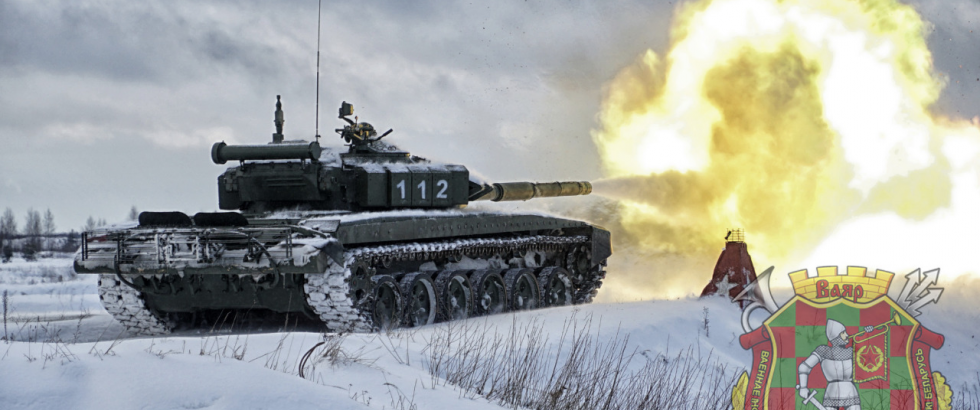By escalating, Minsk risks losing its relevance and provoking new Western sanctions
 The situation has not changed
The situation has not changed

Against the backdrop of the continuing escalation of tension between Ukraine and Russia, aided by Belarus, the Lukashenka regime continues to lose autonomy in the eyes of the West. These ongoing processes risk incurring new sanctions from Western countries in response to participation in the campaign of military pressure on Ukraine.
Significantly, Western politicians prefer to discuss regional security issues involving Belarus with Russian President Vladimir Putin rather than the Belarusian leadership. Consequently, in the context of security guarantees and de-escalation of the situation around Ukraine, Putin has already promised his French counterpart, Emmanuel Macron, that Russian troops will withdraw from Belarusian territory following completion of the “Allied Resolve-2022” exercises on February 22nd. He also reassured the French leader about rumours of the deployment of Russian nuclear weapons in Belarus after the constitutional referendum, which Lukashenka has repeatedly hinted at.
Russian and British Foreign Ministers Sergei Lavrov and Liz Truss also discussed the Union Resolve 2022 exercises. Lavrov stated that when the exercises in Belarus end and Russian troops leave, the West will present this as a “victory”, claiming they have achieved de-escalation.
The EU also prefers to appeal directly to Russia, urging the Kremlin to take steps to de-escalate and curtail the buildup of military forces around Ukraine and in Belarus.
The United States also sees less and less autonomy in the behaviour of the Belarusian regime. U.S. Special Envoy for Belarus Julie Fisher believes that Lukashenka clearly depends on Moscow. It is not entirely clear to her to what extent he can manage the presence of Russian troops on Belarusian territory. In addition, some provisions of the draft new Constitution are of concern regarding neutrality. The constitutional referendum will not allow “turning the page” and will not end the political crisis in Belarus.
Washington considers the Belarusian-Russian exercises “Union Resolve – 2022” an escalation of the situation on the border with Ukraine. On February 10, a telephone conversation took place between the Chief of the General Staff of the Supreme Assembly of Belarus, Viktor Gulevich, and the Chairman of the Joint Chiefs of Staff of the US Armed Forces, General Mark Milley, at the request of the Americans. The parties discussed “issues of concern regarding regional security.”
Although both parties agreed not to disclose specific details of the conversation, the context was reducing the likelihood of miscalculation and clarification of the current situation around security in Europe due to rumours of possible provocations from the Belarusian side against Ukraine during the Belarusian-Russian exercises as a pretext for launching a Russian invasion.
Against this background, Republican Senator James Lankford introduced a bill in the upper house of the US Congress that would impose tough sanctions on Belarus for direct or indirect participation in aggression against Ukraine. The draft law states that the United States will not distinguish between Russia and any other country that assists it in acts of military aggression against Ukraine. There are provisions to impose sanctions under the following circumstances:
- joint participation in an invasion
- provision of material, tactical or other support for a Russian invasion
- deployment of Russian troops participating in an invasion
- cooperation with Russian intelligence during an invasion
- supply of lethal weapons for use during an invasion.
Realising the risk of new sanctions and exclusion from dialogue on regional security, Minsk tried to curb the momentum of escalation. Lukashenka stated that Belarus will not participate in an armed conflict against Ukraine on the side of Russia so long as Ukraine does not provoke this.
Realising that regional and European security is now being discussed without its participation, the Belarusian regime is attempting to insert itself into discussions between the Kremlin and the West. Minsk is ready to participate in discussions regarding Russian security guarantees, as Lukashenka made clear in a telephone conversation with Putin.
However, given the fact that the Kremlin has turned Belarus into a completely dependent instrument of Russian foreign policy, it is unlikely that Moscow will share the true status of negotiations. While the Belarusian regime continues to escalate the situation in the region through joint exercises with Russia, the Kremlin attempts to de-escalate with the West and achieve a geopolitical deal on Ukraine, which in one way or another will affect Belarus.
Subscribe to our newsletter




Situation in Belarus
Constitutional referendum: main consequences


 Video
Video
How to count the political prisoners: are the new criteria needed?


 Video
Video
Paternalism In Decline, Belarusian Euroscepticism, And The Influence Of Russia


 Video
Video












